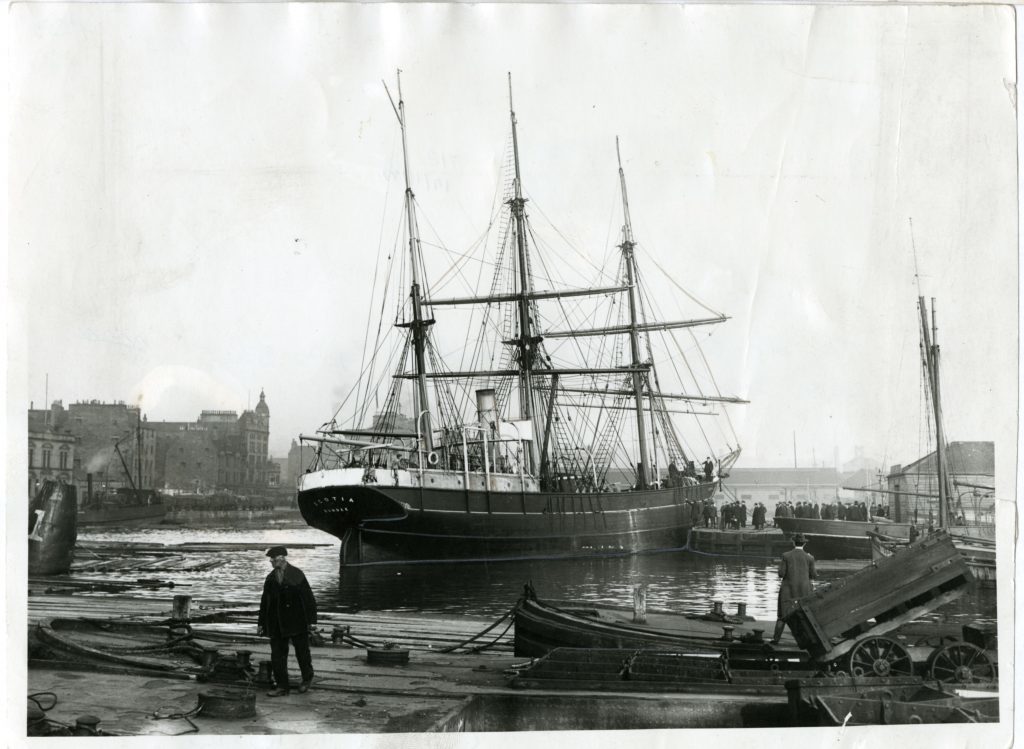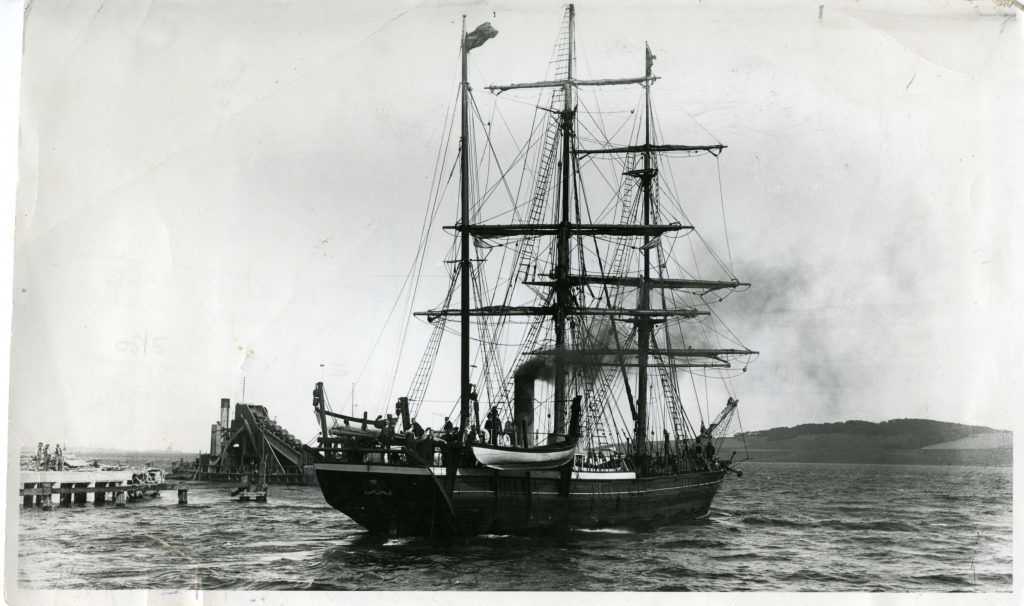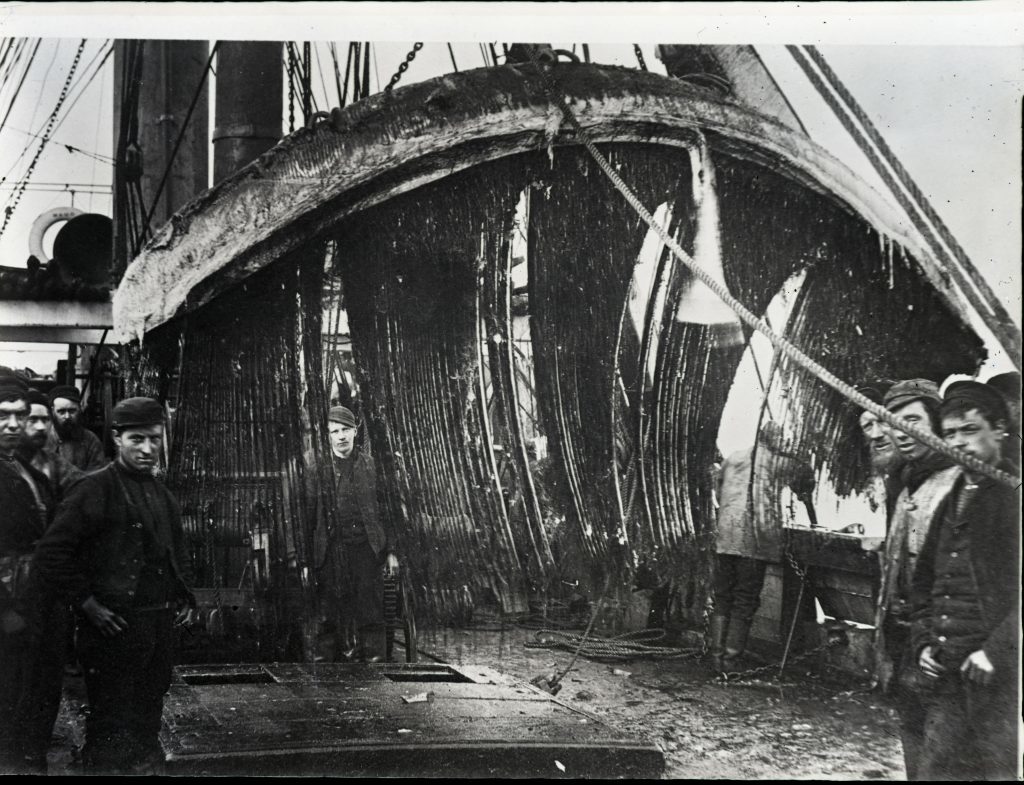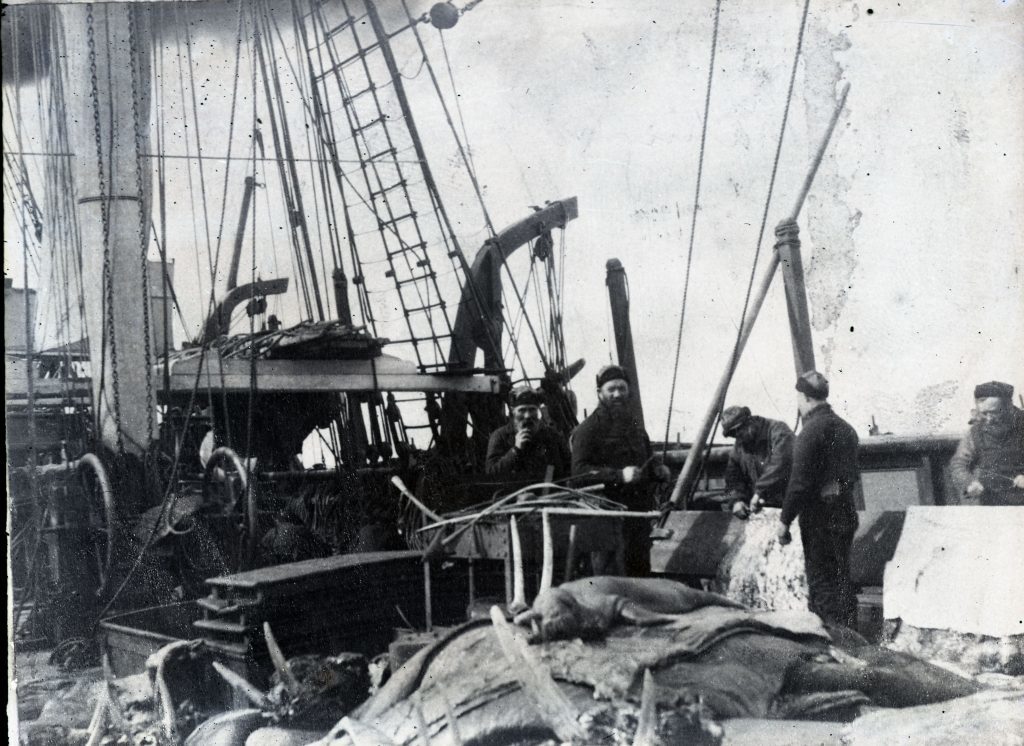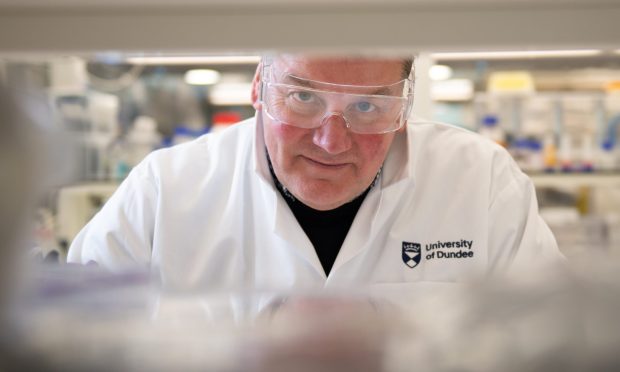As workers in Dundee’s whale and seal industry gagged at the sight and smell of gore, the young women who ran the neighbouring brewery slipped through the gates with shots of whisky.
The drink was much needed and served to settle stomachs rendered tender by the bloody work that once served to make the city known around the world.
The story of the women who found success during the city’s heyday is just one of those being explored by St Andrews post graduate student Matt Ylitalo.
He will spend the next two-and-a-half years exploring the role of the men – and women – within the heavily masculine industry and also looking at the people who prospered from their labours.
Matt, originally from the USA, has already traced money from the city’s whaling and jute barons back to his home nation, where it was invested in huge Texas cattle ranches.
He believes the key to taking the next step lie in finding out more about just one man – the entrepreneur and apparent social butterfly David Bruce.
Poring through financial documents and potted histories of the businesses that thrived in 19th Century industrial Dundee, the student has found the name mentioned time and again.
He was named as manager of the Dundee Seal and Whale Fishing Company, while he apparently invested in all manner of cargo, whaling and sailing ships.
Moreover, he is also said to have dipped into city government, supported charities and played a role on the Mars Training Ship.
“I’ve been digging around and found a certain amount of information on him within university and city archives but I have a hunch that there is so much more.
“He seems to have had connections to the Gilroy, Cox and Baxter families and to other members of the city’s elite.
“He seems to be a pivotal person and I hope that there is someone out there who can help me find out more.”
Today whaling is a hugely controversial topic – unacceptable to many – but in the 18th and 19th Centuries whale and seal hunting were vital to Dundee’s industry.
It involved hundreds of ships worldwide, thousands of men and countless jobs on both side of the Atlantic.
The trade was vital to Dundee, for jobs and industry, with skins traded and oil used first for lighting and then as a vital component in one of the city’s other major trades, jute.
The Dundee whaling fleet participated in the hunt for longer than that of any other city or nation, stalking the waves in 1753 and continuing almost until the outbreak of the First World War.
Only then, as the industry waned and the need for its products reduced, did the Dundee ships dwindle and the city’s pre-eminence was overtaken by the Norwegian fleet and its giant factory ships.
“The whaling trade worked out of Dundee for such a long time, with its ships and its people to be found all over the world.
“They were fearless in trying things and looking for new opportunities.
“I have found some pretty neat stories.
“There are the young boys who began their lives at sea upon the Mars training ship and then progressed onto the sailing ships bound for the Antarctic.
“This was an uber-masculine trade, but I have also been discovering about the women who found their way in this world.
“There is one story of women who ran a brewery next to the whaling yards in what is now the Seagate.
“The story goes that they used to bring whisky to the people cleaning the gory mess to get them prepared for the day ahead.
“As I walk past the bus station, and along the Seagate I see the cranes, the yards and the shipbuilders that were once there. There are still legacies from these days.”
Anyone with information on the life of David Bruce is asked to email Matt at mwy@st-andrews.ac.uk.
